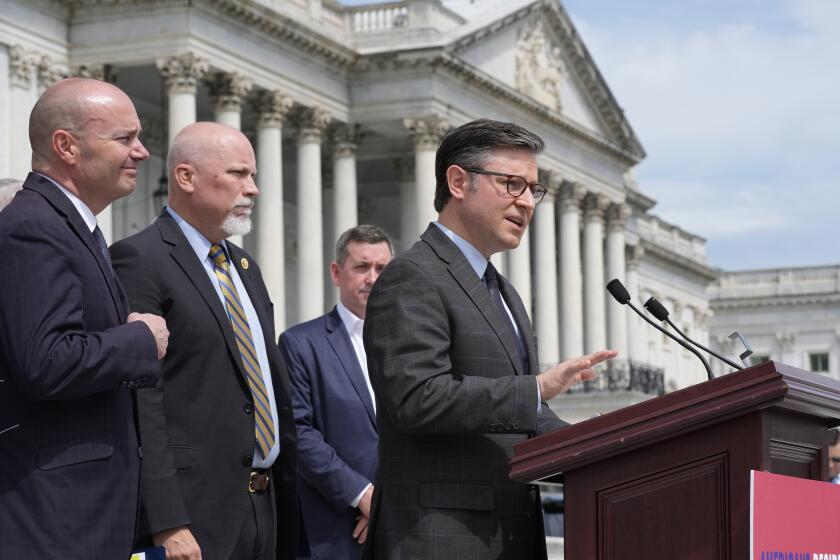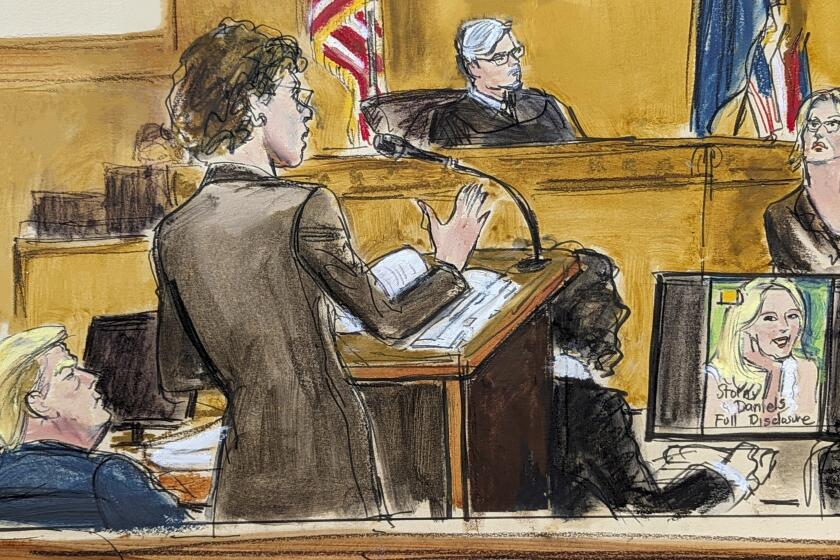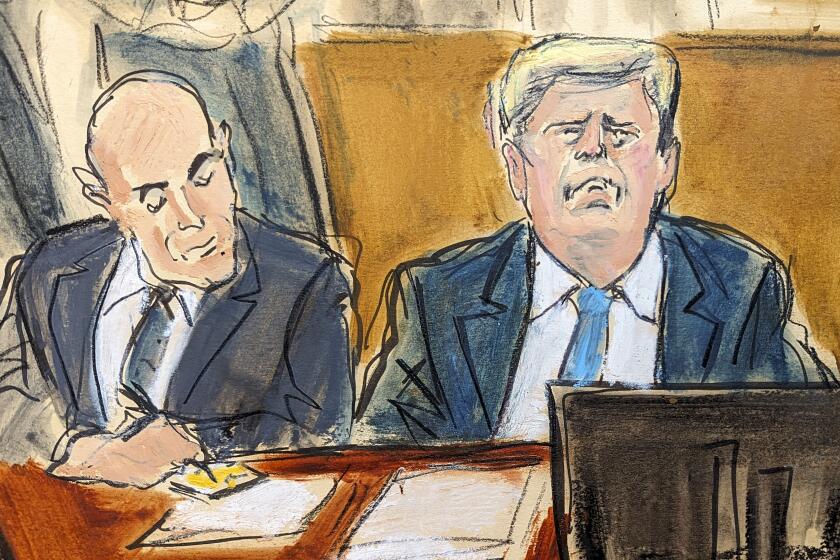Deadlocked Democracy: What Would Teddy Do?
During the 20 years I’ve taught American history, I’ve made a point of urging students to vote. If nothing else, I say, it gives you permission to complain at an unfavorable outcome. But these days I find it hard to make that case with conviction.
I happen to live in Texas, which George W. Bush will certainly carry by a large margin. For this reason, and because of the way the electoral college operates, I can’t honestly tell my students -- Democrats or Republicans -- that their votes might tip the balance. They won’t. (In fact, individual voters in all but the handful of battleground states might as well stay home too.)
Neither can I argue that my students’ votes might tip the balance in races for Congress. Computer-aided partisan redistricting has essentially guaranteed victory to the incumbent party in most districts. By the time of the general elections, the result is all but assured.
But I can tell my students about another period in American history, when democracy had reached a comparable deadlock and voters were similarly discouraged. And it just so happens that the deadlock began to break 100 years ago next month, when Americans for the first time elected a president committed to the principles of progressive reform.
If the political bosses had had their way, Theodore Roosevelt never would have gotten anywhere near the White House. When the Republican convention in 1900 nominated him for vice president on the ticket with William McKinley, GOP boss Mark Hanna grew apoplectic. “Don’t any of you realize,” he spluttered, “that there’s only one life between that madman and the presidency?” And when McKinley’s assassin ended that one life, the bosses spluttered some more.
Progressivism in Roosevelt’s time took many forms -- busting trusts, uplifting the poor, conserving America’s natural resources. But at the heart of the progressive project was a belief that democracy had been hijacked by the political parties and the special interests. City governments had been corrupted by urban machines; the Senate was a “millionaires’ club”; presidential nominations were controlled by the party bosses. Only an act of God -- McKinley’s murder -- let Roosevelt through.
“It is a dreadful thing to come into the presidency this way,” Roosevelt told a friend. “But it would be far worse to be morbid about it. Here is the task, and I have got to do it to the best of my ability.”
Roosevelt’s task, and that of the other progressives, included campaigning to have the people, not state legislatures, elect U.S. senators; establishing primaries for choosing presidential nominees; authorizing initiatives and referendums so that citizens might directly write laws; and granting women the vote.
The progressive agenda had the support of the people, as witnessed by Roosevelt’s 1904 election -- by the largest popular margin in American history to that point -- and by the 1912 and 1916 victories of progressive Democrat Woodrow Wilson. Progressives succeeded in amending the U.S. (and states’) constitutions -- the 17th Amendment stipulated direct election of senators, the 19th guaranteed women the vote.
Our difficulties today don’t require anything as drastic as amending the U.S. Constitution. The Constitution establishes the electoral college, but the states determine how the electors are chosen. Most states follow the winner-take-all method that encourages the party nominees to ignore states in which one candidate or the other has a large lead. But Maine and Nebraska have formulas that allow them to split their electors among the candidates, and Colorado is considering it. Should other states do the same, the nation would be much closer to the democratic ideal of making each vote count.
Congressional redistricting is also up to the states; if the states charge independent commissions with drawing districts in party-neutral ways (as Iowa and Washington have done), congressional elections once again would mean something.
Such changes won’t come easily. But changes didn’t come easily in Roosevelt’s day, either. The bosses and moguls never accepted him, even after his overwhelming victory. When Roosevelt took off on a post-presidential African safari, J.P. Morgan was said to have raised a glass and proposed a toast: “Health to the lions!”
What Roosevelt and his fellow progressives counted on was the democratic conscience of America: the belief that the ordinary people, not political parties, not special interests -- ought to govern. It was a powerful idea then, and it still is.
More to Read
Get the L.A. Times Politics newsletter
Deeply reported insights into legislation, politics and policy from Sacramento, Washington and beyond. In your inbox three times per week.
You may occasionally receive promotional content from the Los Angeles Times.






